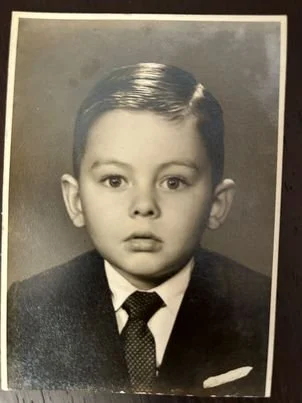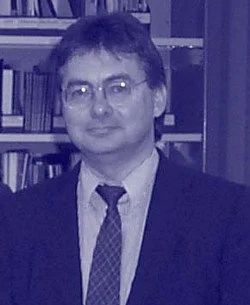The Sofronoff Scholarship - The Honourable Walter Sofronoff KC
This biography has been prepared by Alice Muir, his Honour’s last associate prior to his retirement as President of the Queensland Court of Appeal.
Walter Sofronoff KC is widely recognised for his exceptional advocacy skills, numerous professional achievements and his fondness for very fast and very red cars. However, what stands out to me the most about Mr. Sofronoff is his open-minded and inquisitive nature, which extends beyond the legal realm. Despite his impressive four decades at the bar, and slightly over five years on the bench, he consistently seeks out fresh knowledge, perspectives and experiences.
Walter Sofronoff KC is the child of refugees. His father, a Cossack, fled Russia on horseback, and rode into Mongolia in 1930 following the Bolshevik revolution and the encroaching collectivisation of agriculture. He found work as a horse dealer in Shanghai where he met Mr Sofronoff’s mother whose family had fled Harbin in Manchuria. When Shanghai was later occupied by the Japanese, Mr Sofronoff’s mother and father fled again. First to a refugee camp in the Philippines and then to Australia where Mr Sofronoff was born. In 1956, Mr Sofronoff and his family moved to Hong Kong where his father had accepted a job as a horse trainer.
Mr Sofronoff spoke Russian at home and Cantonese in the playgrounds and streets of Hong Kong. It was only when he began school that he learnt English, which he spoke with an American accent like his peers. In his second year of high school, Mr Sofronoff was sent back to Brisbane to complete his education.
Upon finishing school, Mr Sofronoff admits to having no direction, but like many children of refugees, he felt he had a duty to vindicate the hardships of his parents by getting an education and doing well. For this reason, he followed a school friend and enrolled to study Bachelors of Laws and Arts at the University of Queensland.
Throughout his career he maintained a broad practice, aspiring to be the kind of lawyer to whom any case could be brought. While his initial focus was on criminal law, he soon expanded his expertise to civil, administrative and constitutional law.
Between 1992 and 1996, Mr Sofronoff served as the Vice-President and President of the Bar Association. In 1999, he was appointed President of the Queensland Anti-Discrimination Tribunal. He served as Queensland’s Solicitor General from 2005 to 2014. Mr Sofronoff went on to lead several significant inquiries, including the 2015 Grantham Flood Commission of Inquiry and the 2016 Parole System Review.
In 2017, Mr Sofronoff KC was appointed President of the Queensland Court of Appeal. In 2021, Mr Sofronoff was appointed a member of the Anti-Doping Commission of the Federation Internationale de I’Automobile—the governing body of international motorsport—and then a judge of the International Court of Appeal of the FIA.
In my time at the court, I found him to be a very humble, generous man with a deep reverence for the rule of law and an absolute commitment to the legal profession. He seemed to delight in having his preconceived notions about a case being proven wrong by counsel. In hearing applications for leave to appeal by self-represented litigants, Mr Sofronoff took time and care to ensure not only that natural justice was delivered, but that parties felt heard and respected by the court. He even went so far as to shrug off the rules of court etiquette, once allowing a man to bring his pet dog to his hearing and another time telling me, “The authority of the Court of Appeal is not undermined by jeans”.
Mr Sofronoff’s career and skills at the bar were legendary. The former Justice Kirby describing Mr Sofronoff’s opening statement in landmark Wik case called it a: “powerful, indeed electric moment”. Despite this, Mr Sofronoff espoused to me a belief that a barrister’s success in advocacy is dependant not on oration or rhetoric but rather effort and technical application of craft.
Mr Sofronoff KC retired from the Queensland Court of Appeal in May of 2022, but he did not retire from the law. He was quickly appointed to conduct The Commission of Inquiry into Forensic DNA Testing in Queensland and, subsequently, The ACT Board of Inquiry Into the Trial of R v Lehrmann.
A scholarship in Mr Sofronoff’s name benefitting those students facing financial difficulties is particularly appropriate. Australia’s legal profession is enriched and made fairer when students from all backgrounds have access to legal education. There is no more cogent example of this than Mr Sofronoff, whose parents were twice refugees, and who grew up speaking English as his third language. This scholarship will assist students to find their passion for the law, as Mr Sofronoff did, and will hopefully make it easier for students who will form the next generation of dedicated and consummate legal professionals.



